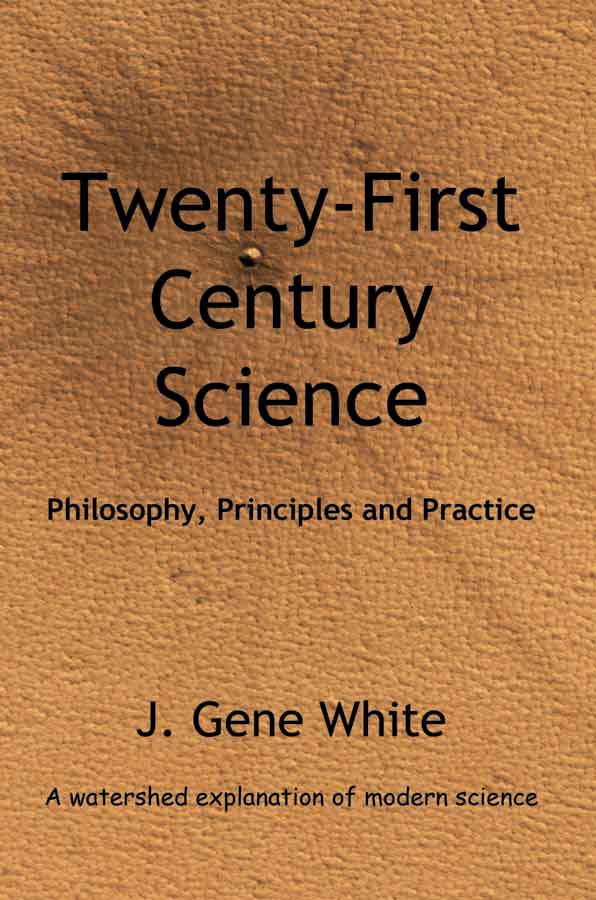Twenty-First Century Science
Philosophy, Principles and Practice
by
J. Gene White
As explained in Twenty–First Century Science: Philosophy, Principles and Practice by J. Gene White, the search for truth has been an ongoing endeavor for centuries. Diverse areas of truth–seeking include religion, politics, economics, history, philosophy, and science. Science has emerged as one dependable way to understand nature and the world around us.
 |
|---|
| BUY-AMAZON.COM |
| BUY-BARNES & NOBLE |
Philosophically, science may be defined as a human search for truth (dependable knowledge) about nature and the universe in which we live based on empirical evidence and its logical inferences. Nine philosophical principles can be identified essential for science to be a successful truth–seeking enterprise. Philosophy, rather than law, defines the foundational principles and overarching ideals of science. Failure to rigorously follow the identified principles will have negative consequences on science as a truth–seeking process. When correctly framed, people of religious and non–religious persuasion can support the philosophical underpinnings of science. Science can have a positive influence on our culture.
How Should Science be Defined?
A good definition of science has thus far been an elusive proposition. Definitions given by the mainstream scientific community are often self–serving and misleading. The National Academy of Sciences view science as naturalistic and restricts science to natural causes and natural explanations about the natural world. Philosophers tend to muddle the issue by treating scientific thought as equivalent to that expressed in politics, economics, and metaphysical propositions. The statement, “Science is what scientists do,” sheds little light on the issue. As explained by the author, nine philosophical principles can be identified which form the foundation of science. Additionally, science can only be rationally understood when divided into its three fundamentally different divisions, each having a different basis, unique strengths, and inherent limitations. With this as a basis, the reader is equipped to analyze claims made in the name of science.
One of the major issues in science education is the controversary over origins. Is mankind and the universe in which he lives a product of random, purposeless, undirected, natural cause or is it the result of non–random, purposeful, directed, intelligent cause? Can science be dogmatically limited to natural explanations (as opposed to supernatural explanations)? Can the debate about origins be other than an argument between science and religion? Can intelligent design be anything other than biblical creationism by another name? How should scientific theory be taught in public science education in view of the fact that theory—by its nature—is based on incomplete knowledge? Can theories of origin be separated from inherently attached philosophical and religious beliefs? The author addresses these questions and others in this watershed explanation of twenty–first century science.
For your personal copy of Twenty–First Century Science: Philosophy, Principles and Practice by J. Gene White. click AMAZON.COM or BARNES & NOBLE to order. The retail book price is $14.95.